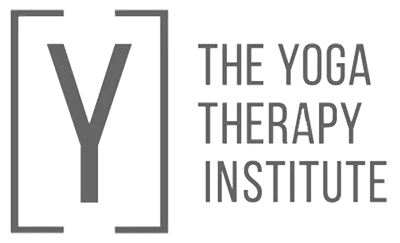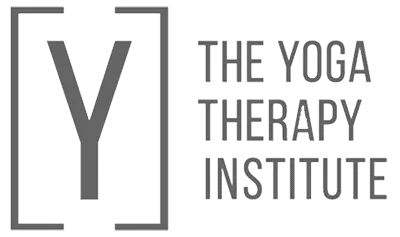Frequently Asked Questions
About Modules
What are the prerequisites for the modules?
To join our modules, you must meet the following requirements:
- 200-Hour Yoga Teacher Training certification from Yoga Alliance or equivalent
- One year of Yoga teaching experience
- One year of personal Yoga practice
- Fluent in English
- Minimum 18 years old
*Please note that certain course components may have additional prerequisites, as they’re designed to be completed during the final stages of the diplomas.
What are the times of the online modules?
The schedule for the online modules goes from 9:30 in the morning to 18:00 in the evening (Central European Time), with breaks in between.
We do recommend all our students to keep all the hours between 9:30 and 18:00 CET free to attend live sessions and complete their student home study and assignments.
What can I expect during the classes?
You can expect live zoom lectures and practical sessions guided by our teachers, student home study time with pre-recorded Yoga Therapy practice videos – which are later discussed in class – audio recordings, and assignments which you do by yourself or in breakout rooms with your peers.
What are the specific props that will be used in the modules?
The specific props that will be used in the modules will vary depending on the subject being discussed and the needs of the students and clients. However, some of the most common props that are used in Yoga Therapy include yoga mats, blankets, bolsters, cushions, chairs, eye pillows, straps, blocks, and exercise balls.
If you don’t have all of the props, don’t worry! You can improvise with household items. For example, you can use a rolled-up towel instead of a bolster or a pillow instead of a block.
Do your modules offer continuing education credits?
Yes, the following modules offer continuing education credits:
- Yoga Therapy Foundation Course 100-Hours (100 CE credits with Yoga Alliance)
- Safety in Yoga Nidra & Relaxation for Yoga Therapy (12 CE credits with Yoga Alliance)
- Yoga Therapy Applications of Asana, Pranayama & Restorative Yoga (50 CE credits with Yoga Alliance)
- Yoga Therapy for Musculoskeletal Issues & Lower Back Pain 100-Hours (100 CE credits with Yoga Alliance)
- Yoga Therapy for Cardiovascular & Respiratory Health Issues (50 CE credits with Yoga Alliance)
- Yoga Therapy for the Nervous System, Degenerative Disease & Pain Management (50 CE credits with Yoga Alliance)
- Yoga Therapy for Digestive Issues: The Gut Link (50 CE credits with Yoga Alliance)
- Yoga Therapy for the Reproductive System, Family Dynamics & the Ageing Process (50 CE credits with Yoga Alliance)
- Yoga Therapy for Endocrine & Immune System Disorders (50 CE credits with Yoga Alliance)
- Trauma-Informed Yoga Therapy (20 CE credits with Yoga Alliance, 18.5 with IAYT, and 14 with Vereniging Yoga Nederland)
Additionally, each Short Course offers 6 CE credits with Yoga Alliance.
Is there an assessment for each module?
Yes, there is an assessment for each module. The assessments vary in format, but they all serve the same purpose: to help you digest the material and put your knowledge into practice.
Some of the assessments you may encounter include:
- Class practice: You may be asked to practise with the entire class. This is a great way to learn from your peers and to get feedback from your teacher.
- Breakout room practice: You may be asked to practise with a small group of students in a breakout room. This is a great way to get more individualised attention from your teacher.
- Take-home assignments: You may be asked to complete a take-home assignment, such as a written reflection or a case study. This is a great way to demonstrate your understanding of the material and to apply your knowledge to real-world situations.
- End-of-module tests: You may be asked to take an end-of-module test. This is a great way to assess your knowledge of the material and to identify any areas for additional learning.
The assessments are designed to help you learn and grow as a Yoga Therapist. They’re not intended to be stressful or overwhelming. If you have any questions about the assessments, please don’t hesitate to ask us!
Do I get access to Zoom recordings for only a certain period of time?
No, you won’t have to worry about losing access to your Zoom recordings. You can access them indefinitely, or download them to store on your own device.
Can I work as a Yoga Therapist after completing one or several modules?
Simply completing one or several modules is not enough to work as a Yoga Therapist. Equally, an advanced, experienced Yoga Teacher Training does not qualify you to work as a Yoga Therapist.
You will need to have completed at least 625 hours with a recognized Yoga Therapy school, or, in some cases, you can only work as a Yoga Therapist when you have an IAYT accredited Yoga Therapy Diploma such as The Yoga Therapy Institute’s 875-hour.
If you want to work in a hospital or medical center, you may require additional qualifications. When working with clients, students who are still in training should inform all parties involved that they are not yet certified Yoga Therapists.
About Diplomas
Can I do the entire course online?
The IAYT has updated their policy and now allows their accredited Yoga Therapy programmes to be completed online. This means that you can complete both the 625- and 875-hour courses entirely online.
Is it possible to just do a single module instead of the 625 or 875-hour course?
Yes, the following modules can be attended individually:
- Yoga Therapy Foundation Course 100-Hours
- Safety in Yoga Nidra & Relaxation for Yoga Therapy
- Yoga Therapy Applications of Asana, Pranayama & Restorative Yoga
- Yoga Therapy for Musculoskeletal Issues & Lower Back Pain Clinic 100-Hours
- Yoga Therapy for Cardiovascular & Respiratory Health Issues
- Yoga Therapy for the Nervous System, Degenerative Disease & Pain Management
- Yoga Therapy for Digestive Issues: The Gut Link
- Yoga Therapy for the Reproductive System, Family Dynamics & the Ageing Process
- Yoga Therapy for Endocrine & Immune System Disorders
- Trauma-Informed Yoga Therapy
- Applied Somatic Counselling Skills for Yoga Therapists
Many students join our modules to increase their knowledge based on their personal or professional needs. Completing a single module is a great addition to any Yoga teacher’s training, and you’ll receive a Certificate of Attendance upon completion.
Do I have to take the 875-hour diploma modules in a certain order?
You can start with the Yoga Therapy Foundation Course 100-Hours, and then choose to schedule the majority of the modules (on the body systems, the mind, and the tools) in any order you like. After that, you’ll be ready to attend the Yoga Therapy for Cancer Patients & People Affected by Cancer module. You can also request to start your practicum during this time.
We recommend doing the research part of the programme in conjunction with the practicum, as much of the work required will complement each other well. When all coursework has been completed and case studies submitted, you’ll get to showcase your Yoga Therapy skills and knowledge in the final evaluation.
Do I have to take the 625-hour diploma modules in a certain order?
You can start with the Yoga Therapy Foundation Course 100-Hours, and then choose to schedule the majority of the modules (on the body systems, the mind, and the tools) in any order you like. After that, you’ll be ready to start your practicum.
When all coursework has been completed and case studies submitted, you’ll get to showcase your Yoga Therapy skills and knowledge in the final evaluation.
What is the difference between the 625-hour and 875-hour courses?
The 625-hour course allows you to work as a Yoga Therapist in some European countries such as the Netherlands and the UK, but it won’t give you the international certification with the IAYT.
To get certified with the IAYT, you need to complete at least 800 hours in an accredited Yoga Therapy programme.
The Yoga Therapy Institute’s 875-hour course is accredited by IAYT and fulfils the requirements for the international certification.
The Yoga Therapy Diploma 875-hours has additional requirements compared to the 625-hour course. These include:
- Ayurvedic Healing & Yoga Therapy
- Yoga Therapy for Cancer Patients & People Affected by Cancer
- Ethical, Legal & Business Principles for Yoga Therapy
- Case Study Peer Supervision
- Additional case study hours
- Additional mentorship hours
- Yoga Therapy Final Project
Can I continue with the 875-hour course after completing the 625-hour course?
Yes! If you complete the 625-hour course, you can continue with the 875-hour course. You have a maximum of 3 consecutive years, plus 1 year to finish case studies. This time includes the time it takes to complete the entire 625-hour course.
How long does it take to complete the 850-hour course?
The 875-hour course must be taught for at least 2 years, in accordance with the IAYT’s standards. You can take up to 3 years in a row to complete the programme, and an extra year is allowed to finish case studies, making a total of 4 years.
How long does it take to complete the 625-hour course?
The 625-hour course can be completed in a maximum of 2.5 years in a row, with an additional 6 months needed to finish case studies, making a total of 3 years.
Will I be required to take the IAYT certification exam?
The IAYT certification exam will be required for all graduates of any IAYT-accredited programme who begin their training on or after July 1, 2023. However, if you were already enrolled in the programme before this date, you’ll be exempt from taking the exam.
Rest assured, our 875-hour programme is fully accredited by the IAYT and meets all of their standards and curriculum requirements. You won’t be expected to have knowledge of anything that is not covered in our modules and case studies. By the end of the programme, we’re confident that you’ll be well-prepared to take and pass the certification exam. Additionally, the IAYT is currently working on developing a study guide for the exam, which will provide you with information on the subjects to review before taking the exam.
Please visit IAYT for more information about the certification exam.
About Case studies & Mentorship
When do I start case studies and mentorship?
You can begin your case studies and mentorship (practicum) when you’ve completed the majority of the modules of the diploma and are ready to put all the knowledge you’ve gained into practice.
The practicum is a hands-on experience where you work with clients under the supervision of a certified Yoga Therapist. Case studies are an opportunity for you to document your work with clients and reflect on your experiences. Mentorship is a way for you to get support and guidance from a more experienced Yoga Therapist.
When can I join mentorship?
You can join mentorship once you have completed all of the modules and are ready to commence your case studies. To register, simply send us an email.
What is included in the price of mentorship?
The price of mentorship includes direct access to your mentor by email for support, including 11 hours (875-hour diploma) or 5 hours (625-hour diploma) of one-on-one online mentorship sessions. The mentorship sessions are approximately an hour long each, and the mentor will provide you with guidance and support on your work and help you to improve your skills.
What if my mentor is not available to meet with me on short notice?
If your mentor is not available to meet with you on short notice, you can contact us to be referred to another mentor. We have a range of mentors who are available to meet with mentees. In some cases, your mentor may suggest this themselves.
The open environment of the programme allows you to benefit from the guidance of different perspectives. Each member of the faculty has their own area of expertise, and they can offer you valuable insights and advice. This diversity of perspectives can help you to gain a deeper understanding of your case study and to develop your own professional identity.
What if I’m triggered by one of my case studies?
As a Yoga Therapist, you may be exposed to a variety of case studies that can be triggering for you. This is especially true if you have personally experienced trauma or have a history that is similar to the client in the case study. It’s important to remember that you are not alone in this. Many Yoga Therapists experience triggers at some point in their careers.
If you find yourself triggered by a case study, it’s important to ask for guidance from your mentor. Your mentor is a great resource for support. They can help you to understand your triggers and to develop coping strategies. They may also refer you to our educational counsellor or to an outside therapist.
What if I have questions about client work after graduation?
We understand that there may be questions or challenges that arise as you begin your work as a professional Yoga Therapist. We’re happy to provide you with continued support and invite you to contact us with any questions or professional issues that might arise with your clients and students.
For our 875-hour diploma graduates, we host bi-annual alumni meetings where you can connect with other graduates and faculty members to discuss your professional growth and challenges.
About prices
What are the prices of the 625 and 875-hour Yoga Therapy Diplomas?
To receive the different prices and payment options of our diplomas, please fill out this quick FORM.
What is included in the price of the course?
The price of the course includes access to all live module lectures, unlimited access to the educational platform, written materials, presentations, full recordings, practice videos, audio files, and assignments. It also includes mentorship and access to the faculty and team for any email support you may need.
The price of the course does not include books from the reading list, yoga mats or props, or any other materials or equipment that may be required for the course.
Are the IAYT fees included in the course price?
The IAYT is a separate organisation from ours, and they charge their own fees for certification, membership, and other services. These fees are not included in the course price, so you will need to pay them separately.
Do you offer a payment plan?
Yes, we offer students of the 625- and 875-hour diploma courses a payment plan to make paying for Yoga Therapy education as easy as possible. To set up this plan and for more information, please contact us.
Do you offer a discount on your training?
We offer a variety of discounts and promotions on our Yoga Therapy training courses throughout the year. To see the current discounts and promotions, please visit our promotions page.
Do you have a cancellation policy?
Yes, we understand that plans can change, and we have a cancellation policy in place to accommodate that. To ensure clarity and transparency, we have provided detailed information about our Payment & Cancellation Terms.
Do you offer a scholarship?
We are in the process of developing a scholarship for 2024-2025.
How much does the training cost in my currency?
All of our training options are listed and charged in EUROS. The cost of the training in your currency will depend on the current exchange rate. You can use a currency converter to get an estimate of the cost. However, please note that the actual cost may be slightly different due to fluctuations in the exchange rate.
Others
What are the accommodations available for students with disabilities?
At The Yoga Therapy Institute we are committed to providing accessible learning experiences for all students. If you have a disability and need accommodations, please feel free to contact us.
Why are self-care and professional development important for Yoga Therapists?
Self-care is important because it helps the Yoga Therapist to maintain their own physical, mental, and emotional health. This is important because Yoga Therapists are often working with clients who are struggling with health challenges, and they need to be able to offer their clients support and guidance from a place of resilience and well-being.
Professional development is important because it helps the Yoga Therapist to stay up-to-date on the latest research and best practices in Yoga Therapy. This is important because the field of Yoga Therapy is constantly evolving, and Yoga Therapists need to be able to adapt their practices to meet the needs of their clients.
Didn't find the answer?
Need help finding the right course for you?
Ready to start your journey?


